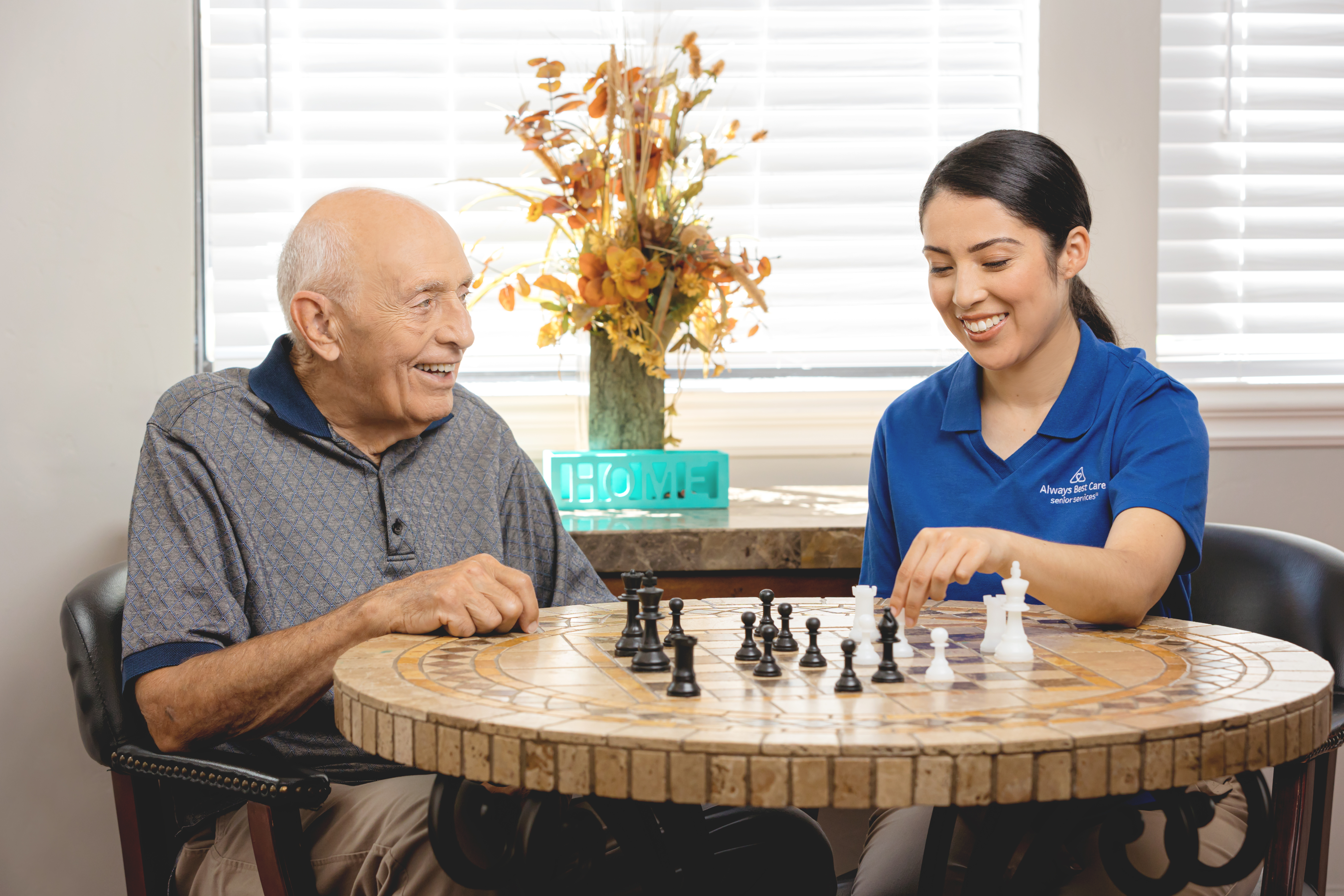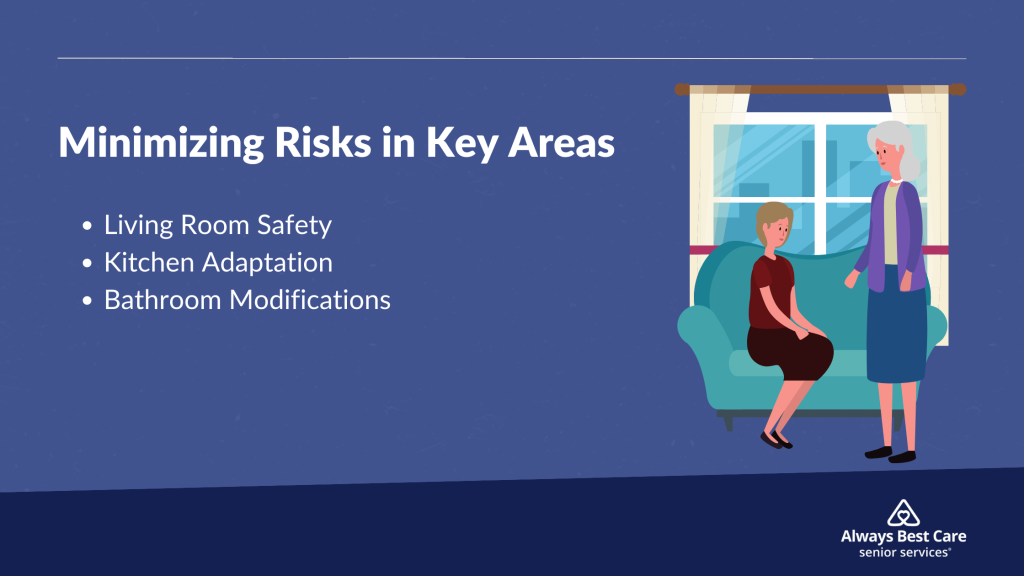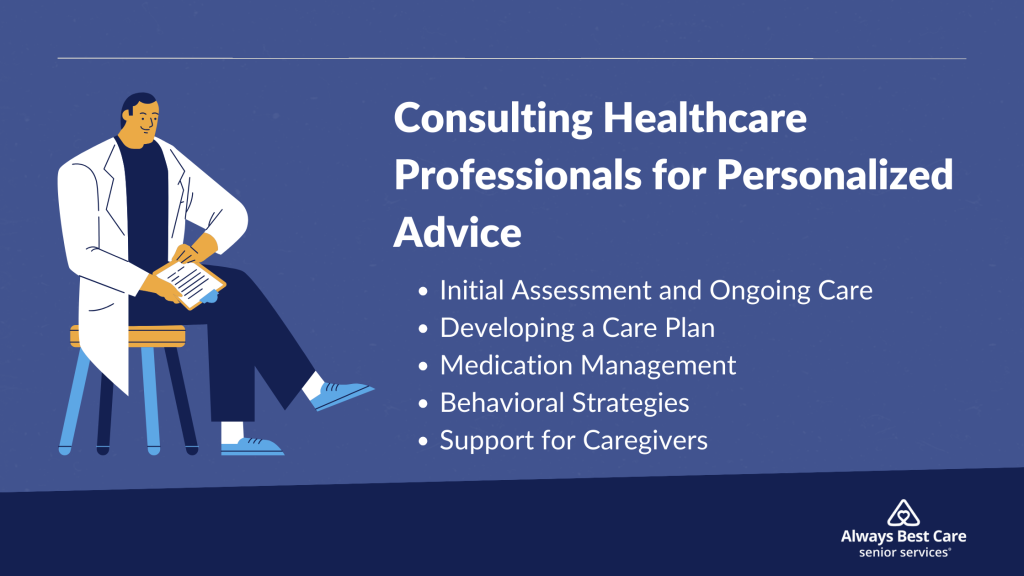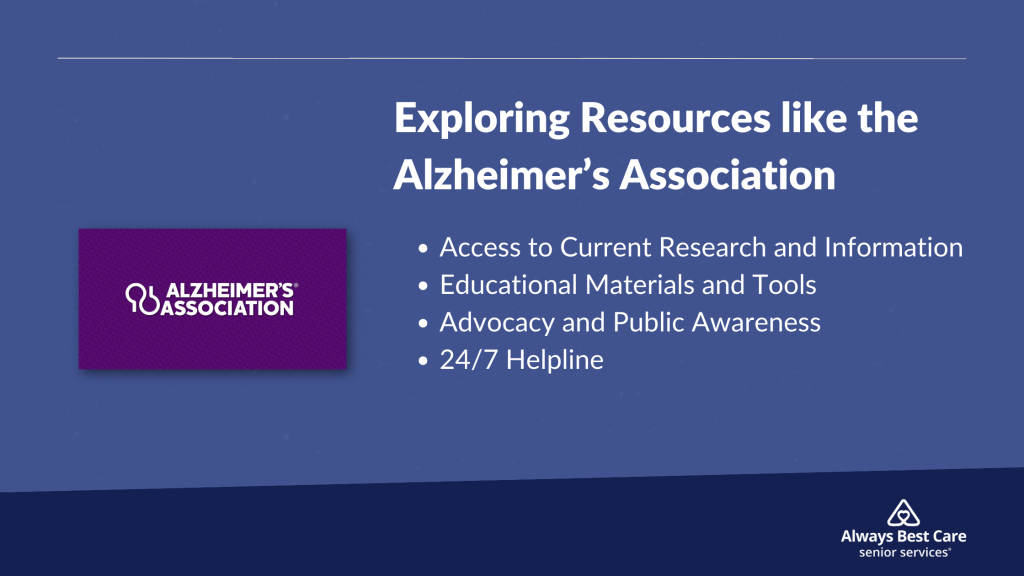Creating a Safe Home Environment for a Loved One with Dementia

Caring for a loved one with dementia presents unique challenges, particularly when it comes to ensuring a safe and comfortable home environment. This comprehensive guide provides practical tips and strategies to help caregivers create a dementia-friendly home that supports the well-being of their loved ones.
Table of Contents
Understanding Dementia and Home Safety
Dementia affects memory, thinking, and social abilities, significantly impacting daily life. Adapting the home environment to reduce risks and provide a supportive space is crucial. Key considerations include minimizing hazards, enhancing comfort, and promoting independence.

Minimizing Risks in Key Areas
- Living Room Safety: Remove clutter and ensure clear pathways. Use non-slip rugs and avoid sharp corners on furniture. Consider installing locks on windows and doors for added security.
- Kitchen Adaptations: Install safety devices on stoves and ovens. Keep sharp objects and hazardous materials out of reach—label cabinets clearly for easy navigation.
- Bathroom Modifications: Install grab bars near the toilet and in the shower. Use non-slip mats and consider a shower chair for stability. Keep medications in a secure location.
Promoting Comfort and Familiarity
Promoting comfort and familiarity in a home environment for individuals with dementia is essential. Maintaining a familiar setting with cherished items and photographs helps to evoke memories and provides a sense of security. Using calming colors in the home decor can create a soothing atmosphere, reducing anxiety. Adequate lighting is also crucial, as it improves visibility and orientation, helping to prevent confusion and accidents. These elements together create a more comfortable and reassuring space for someone with dementia.
Supporting Independence
Supporting independence in individuals with dementia involves encouraging them to engage in simple, routine tasks, which can provide a sense of normalcy and self-efficacy.
Labeling drawers and cabinets with pictures or words helps them easily identify contents and reduces confusion. The use of assistive technology, such as automatic night lights, can enhance safety by illuminating paths at night, minimizing the risk of falls. GPS devices are useful for tracking and ensuring the safety of individuals who may wander.
These tools and strategies collectively support their independence while ensuring their safety and well-being.
Engaging Activities and Spaces
Create areas for engaging activities that match the interests and abilities of your loved one. Simple puzzles, gardening, or listening to music can provide meaningful engagement and a sense of accomplishment.
Use clear, simple language and visual cues to aid communication and orientation. Large clocks, calendars, and signs can help with time orientation and navigation within the home.
Professional Support and Resources
When caring for a loved one with dementia, tapping into professional support and resources is invaluable. This in-depth exploration highlights the importance of consulting healthcare professionals and utilizing organizations like the Alzheimer’s Association for comprehensive support and up-to-date information.

Consulting Healthcare Professionals for Personalized Advice
- Initial Assessment and Ongoing Care: Engaging with healthcare professionals, such as neurologists, geriatricians, and psychiatrists, provides a foundation for understanding the specific type and stage of dementia. They offer personalized advice tailored to your loved one’s needs, ensuring appropriate care strategies are in place.
- Developing a Care Plan: These experts assist in creating a comprehensive care plan. This plan includes medical treatment, daily care strategies, and long-term planning, addressing both physical and mental health needs.
- Medication Management: Healthcare professionals guide medication management, crucial for managing dementia symptoms and associated conditions. They ensure medications are effective and monitor for potential side effects.
- Behavioral Strategies: Specialists offer strategies to manage challenging behaviors common in dementia, such as aggression, sleep disturbances, and wandering. They provide techniques that reduce stress for both the caregiver and the individual with dementia.
- Support for Caregivers: Professionals also support caregivers, addressing burnout and emotional challenges. They recommend respite care options and caregiver support groups for additional assistance.

Exploring Resources like the Alzheimer’s Association
- Access to Current Research and Information: The Alzheimer’s Association provides a wealth of information on the latest dementia research, treatments, and care practices, helping caregivers stay informed about advancements in the field.
- Educational Materials and Tools: They offer educational resources, including articles, videos, and webinars, that cover a wide range of topics relevant to dementia care. These resources are designed to educate and empower caregivers.
- Support Groups and Community Connections: The Alzheimer’s Association connects caregivers with support groups and community resources. These groups provide a platform for sharing experiences, tips, and emotional support among those in similar situations.
- Advocacy and Public Awareness: The organization plays a key role in advocating for public policies that improve dementia care and research. By participating in their advocacy efforts, caregivers can contribute to broader change.
- 24/7 Helpline: They offer a 24/7 helpline, staffed by trained professionals, providing immediate support, guidance, and crisis assistance for caregivers and those with dementia.
Building a Supportive Community
Building a supportive community for a loved one with dementia involves actively involving family, friends, and neighbors. This network plays a crucial role in providing emotional and practical support.
Educating them about dementia is key; it helps them understand the condition and how to interact positively with your loved one. They can learn to recognize the symptoms, communicate effectively, and assist in daily activities, contributing to a safer and more nurturing environment. Additionally, their involvement can offer respite to primary caregivers, creating a well-rounded care system for the individual with dementia.
Regular Assessments and Adjustments
Regular assessments and adjustments in the home environment are vital for the evolving needs of a dementia patient. As the condition progresses, it’s important to reassess and modify the living space to ensure ongoing safety and comfort. Staying informed about the latest products and strategies is also crucial.
This can include learning about new safety devices, adaptive tools, and environmental modifications that cater to the changing needs of dementia patients, helping to maintain a secure and supportive home setting.
Creating a safe home environment for a loved one with dementia requires thoughtful planning and ongoing adjustments. By focusing on safety, comfort, independence, and engagement, caregivers can significantly improve the quality of life for their loved ones.
Enhance Safety and Comfort for Your Loved One with Dementia Today!
Always Best Care provides quality senior services tailored to your specific needs and abilities. Located at 45150 Club Dr, Indian Wells, CA 92210, United States, contact us today at (760) 848-0427 to schedule a care consultation and learn more about how we can assist you in safely and comfortably aging in place!
Resources:
- https://alwaysbestcare.com/resources/late-stage-dementia/
- https://alwaysbestcare.com/resources/holiday-activities-that-your-senior-can-participate-in/
- https://alwaysbestcare.com/resources/always-best-care-introduces-always-call-offering-free-247-access-physicians/





